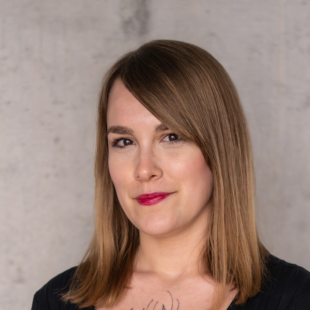Dragana Bajić:
I believe that the trend of start-up development in CEE is indeed very promising, and examples from Serbia, Croatia, and other CEE countries seem to prove that. You already mentioned that the value of start-ups increased significantly in the last decade, and this is very important for this ecosystem. However, also the number of start-ups is getting bigger and bigger, but unfortunately not all of them succeed. However, this is a good sign because it shows that there is a very positive and encouraging atmosphere supported by the local success stories. And the local success stories are those which create value. So, I also believe that the growth in the CEE start-up ecosystem is not just about valuation numbers, it's about creation of job opportunities. CEE start-ups are among Europe’s most efficient in terms of job creation per euro of venture capital invested, and this efficiency in scaling, especially in new sectors such as enterprise software and gaming, suggests a highly promising economy, I think.
Sašo Papp:
Great, thank you, Dragana. Lucija, you deal with start-ups daily. How do you see the development and the perspectives of start-ups in the region?
Lucija Reić:
CEE has definitely emerged as a hub of innovation and entrepreneurship during the last decade, as you said, with more than 30 unicorns and a 19-fold increase in start-up value. So even though the VCs have been more cautious with their investments in 2023 – where we have something like 1.1 billion euros compared to 2.2bn in 2022 and 1.9bn in 2021, according to Dealroom – CEE has still remained a talent-rich, low-cost, and entrepreneurial land of opportunity.
What we can say from our point of view – we currently have over 370 start-ups in our programme, and 170 approximately are from the CEE region, and some of them have actually grown to become the largest start-ups in their respective countries, for example SEON, the largest Hungarian start-up. Many others have managed to receive VC funding, some of them even in 2023, despite the so-called funding drought. So we still consider CEE to be a so-called start-up goldmine. However, whether many of them will follow the “American dream”, and move their headquarters to the US, of course remains to be seen.
Sašo Papp:
What are the most common issues that start-ups face in this region? Dragana, maybe we can start with the legal perspective. Based on your experience, what are the key legal issues?
Dragana Bajić:
Well, whenever we start working with a start-up, we usually always start with fixing the basics. So, what I mean is, due to budget limits and a focus on commercial aspects of the business, the start-ups usually do not spend much energy on legal aspects of the business. Creators are very passionate about their ideas, and most of their focus remains on the creative side. And in most cases, they're just not equipped to think about all the legal risks that they need to prepare against in order to protect and develop their project long-term. They usually come to us when they've already been shopping around their idea, trying out something, but without making sure that their idea is properly protected. They share the details of their project with third parties, either without an NDA in place or with an NDA based on a template that they just found online. Or they establish a company based on an off-the-shelf shareholders’ agreement, without any consideration to solving potential disagreements and exit situations in the far future. This is usually because these ventures started out as cooperations among friends that trust each other, but you know, long-term, you need to think about all of the issues that might come down along the road, and all the problems that the partners may face when they disagree on something that's important. So, this is where you need to have lawyers that think ahead and have experience in what might come up.
Also, when hiring contractors, for example, start-ups usually do so based on contracts that they’ve also found online and that do not provide an adequate level of protection of their IP. And this is especially important. This is crucial. This is where we've come to deal with a lot of problems for the start-ups that we've been working with, and these are just some common examples. The competitiveness of the employment market in this area, especially when we're talking about tech talent, has increased significantly in the last few years. So, start-ups often also need proper legal advice on employment contracts, on equity compensation, and on remote work policies.
Also, because protecting intellectual property in this landscape where talent is highly mobile is a critical area, you also need to have a really, really solid non-compete and confidentiality clauses. So, all this is what we've been working with when aiding start-ups. And if you do not deal with this in the beginning, then this usually results in higher costs down the line, when investors base their evaluations on the legal status of the business. And then they request additional legal actions to protect businesses. So, it's better to do this as soon as possible. I mean, there are also a lot of regulations. They're different from country to country when it comes to start-ups and developing a business. And luckily, many countries are trying to make things easier for start-ups by adjusting their laws to this ecosystem. Bulgaria, for example, did so very recently. So, I just gave a few examples, because this is why we usually suggest to our clients to ensure legal compliance as soon as they can and not to underestimate the importance of this aspect of the value of the business. So, networks such as CMS provide start-ups with support, such as the EquIP programme that we're very proud of, which helps start-ups protect the value of their business on time.
Sašo Papp:
Okay, let's continue with this idea of the EquIP programme that Dragana mentioned. Marija, could you please share more details about it?
Marija Zrno Prošić:
Sure, Sašo. EquIP is a legal accelerator programme whose members benefit from a 50% discount on standard hourly rates during three years. This applies to all jurisdictions covered by the EquIP programme, which is very important for start-ups operating in more than one country. I can give you an example from Croatia. We had a start-up that wanted to expand its business in the UK. They used this programme and thanks to this, they managed to incorporate the company there and set up their business in a legally compliant manner without excessive costs. Because, as I said, they had a 50% discount during the first three years. However, EquIP is more than that. In addition to this financing aspect, it enables start-ups to meet with relevant market players. There is one recent example from Serbia. Thanks to this CMS business network, a start-up from Serbia was given the opportunity to showcase their product to a US-based venture capital fund. I think that they are currently negotiating a one million euro investment. Dragana, correct me if I'm wrong, but I think that they're currently negotiating it.
Sašo Papp:
This programme sounds very useful for start-ups, but what about start-ups which are not, let's say, there yet? Lucija, can you tell us more about the criteria that Infobip uses to select start-ups for the Infobip Startup Tribe programme? And in what ways does the programme support these start-ups? Financially or maybe otherwise?
Lucija Reić:
Since Infobip Startup Tribe is something that we call a perks programme in Silicon Valley, this means, basically, that we give free credits to start-ups that want to use our products and services. So, we have to work with start-ups that are mature enough to either start using our products immediately or start implementing them within a few months. This basically means, since we are an omnichannel communication platform, that a product obviously must exist already. Otherwise, the development stage of the start-up is just too early for our programme. In this context, I guess you could say that we provide them with some kind of financial support, not in the way that we would fund them as an angel investor or VC would, but we offer them free funds which can be used on our communication services. This of course helps them focus more on their product development, marketing, and customer acquisition without having to worry about additional costs, which of course is very helpful to start-ups, especially when they're trying to raise funds.
Sašo Papp:
Thank you, Lucija. Let's switch to the other side of the story and the investors’ perspective. Would you say that investments in CEE start-ups are more challenging for investors than in other countries? Are there any local particularities that come into play, Marija?
Marija Zrno Prošić:
Sure. Well, when comparing the CEE region with jurisdictions such as the UK or US, there are noticeable differences. Based on our experience with CEE start-ups, we can say that they often adopt templates from these markets, which are not necessarily aligned with local legal requirements. For instance, in smaller jurisdictions such as Croatia, Serbia or Slovenia, they tend to offer different classes of shares, convertible loans, and options. However, considering that most are limited liability companies, this means that significant adjustments are needed.
In practice, we as legal advisors help with adjusting these legal instruments to fit within local legal frameworks. While this is not something that hinders foreign investments, it definitely adds an additional layer of complexity. In general, I would say that the potential for investors in the CEE region is significant but is underscored by its diversity. We are talking about many countries with different political landscapes and histories, resulting in different regulatory environments. This necessitates a tailored legal strategy for due diligence and risk management. And here again, the role of legal advisors becomes very important because legal advisors help investors to capitalize on the region's potential while managing all these risks efficiently.
Sašo Papp:
Lucija, if I'm not mistaken, Infobip is not only a supporter of start-ups, but an investor too. Can you maybe share your experience with investments in this region?
Lucija Reić:
Although we formally do not have our own CVC yet, Infobip has made a strategic investment in the Croatian start-up STEMI. So, together with Damir Sabol, the founder of Photomath, Infobip has supported the ed tech startup with 400,000 euros, while our relationship with them was also strengthened with a partnership. So, each year we help them organise the Schools of the Future, and we also are one of their programme partners. But within the programme, although we do not directly invest in the start-ups, we do have over 150 VC partners. So, we connect our start-ups with the partners in hopes of them of course receiving funding.
Sašo Papp:
Great, great. What about the future? Do you believe this trend of an increasing number of start-ups in the region will continue? Do you expect any major changes in legislation or otherwise that would further facilitate and boost this segment of the economy, Lucija?
Lucija Reić:
We really see that there's a noticeable trend of growth within the start-up scene in the CEE region. And of course, it seems to continue. So, one of the most prominent trends we observe, not just in CEE, but in Europe and I would say also globally in general in 2023, is the increase in female founders. And we believe that the shift is quite significant and it's bringing a new dynamic to the start-up landscape.
Of course, another major development is the adoption of enterprise AI. So, it's not just about the technology itself. It's how businesses are leveraging AI to improve their operations, to make smarter decisions, and focus more on customer needs. And we believe that this adoption is a big step for the CEE region, as it positions businesses here to be more competitive on a global scale. And all in all, these trends point to an exciting and evolving start-up environment in our region.
Sašo Papp:
Marija, your thoughts on this, maybe?
Marija Zrno Prošić:
I agree that start-up growth in the CEE region will continue, though its intensity might vary across different areas. From a legal point of view, a crucial factor in fostering this growth is legislative change, of course, but in addition to that, what is essential is making the business environment more attractive to investors. We are seeing some positive trends in this regard, with some jurisdictions introducing more flexible legal structures. Dragana already mentioned Bulgaria. They really are a prime example with their legislative change in 2023, which enabled legal entities with variable capital. In essence, start-ups can incorporate a company with lower capital requirements, reduced administrative tasks, and more flexibility. So, in the end, this legislation has enabled starting a business in an easier manner.
Sašo Papp:
That's great. Dragana, your thoughts about the future?
Dragana Bajić:
Well, the main challenge that we see for the CEE start-up ecosystem is in the employment sector, particularly in sourcing experienced software engineers. This challenge has intensified since 2019, partly due to the global shift towards remote working. This shift has broadened the labour market, escalating the huge competition for talent. And now our start-ups are competing for talent not just locally, but globally for skilled tech professionals. To address this, several Eastern European countries are actively working to track their diaspora, aiming to strengthen their local start-up ecosystems with experienced professionals from abroad. And legal frameworks are being updated to facilitate this return of a skilled workforce and their integration into the local market. For example, in this area, Serbia has taken steps to attract digital nomads and is considering measures to simplify visa processes and work permits. So, this is still in the pipeline, but the government sees this as something they should focus on. And there was a clear need for reform in employment and investment laws to support the hiring of international talent further and to adapt to the realities of remote and flexible working models and work arrangements. So yes, we are hoping for more legislative changes in that direction.
Sašo Papp:
A lot of changes in the future, right? Should be, hopefully. Any final remarks or suggestions either for start-ups or for investors, Marija?
Marija Zrno Prošić:
Well, for start-ups – let's start with them – getting familiar with key features of the legal framework applicable to their business is crucial if they want to avoid unnecessary burdens and costs later on. Staying ahead in legal compliance, especially in IP and employment law, is crucial. For investors, well, our suggestion would be to continue navigating the unique CEE landscape with a focus on due diligence and an understanding of the regional market dynamics.
Sašo Papp:
Okay, big thanks, Lucija, Dragana, Marija, it was a pleasure. Thanks to everyone for listening. And if you missed any of our previous episodes, you can find them on the CMS website or revisit, re-watch, re-listen to them via your LinkedIn profile, or wherever you watch or listen to your podcasts. Thanks. See you next time.








